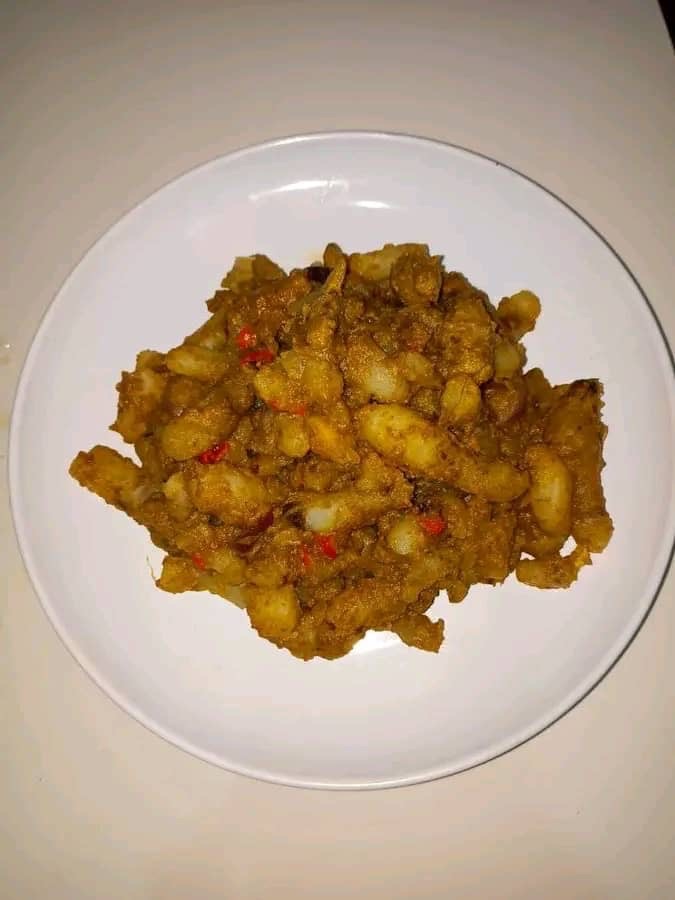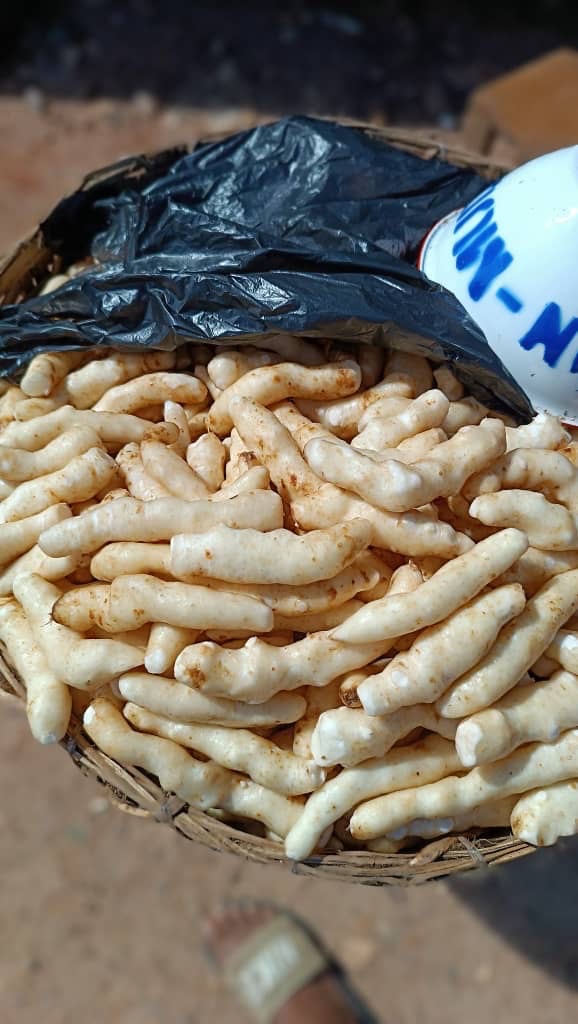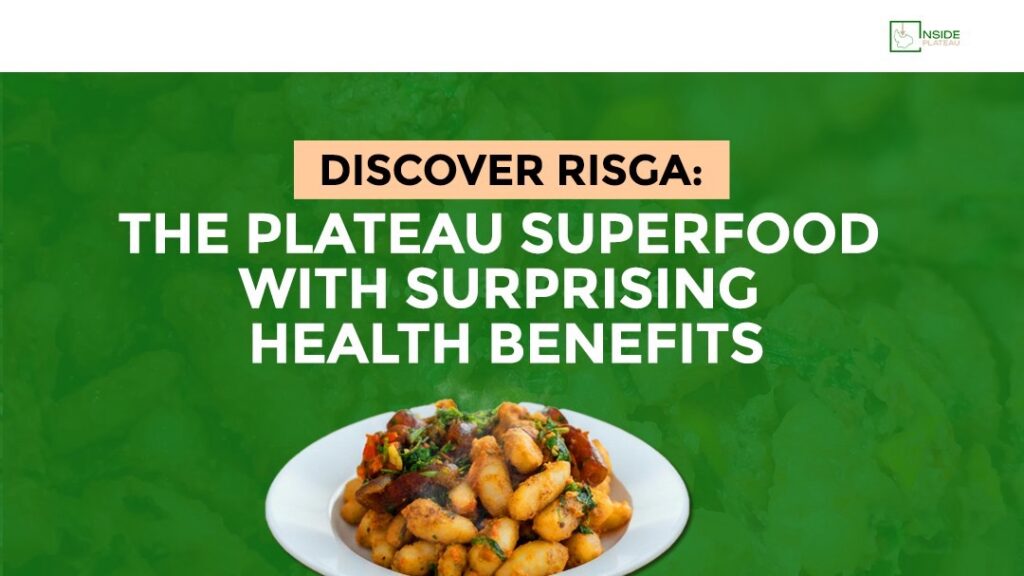Plateau State is known for its rocks grand, immovable, timeless. But the real wonders of the land are not just carved in stone. Some lie quietly in the soil, waiting for the rains to soften the ground, waiting for a farmer’s hand to pull them up. That is how risga appears: not with fanfare, but with the earthy satisfaction of something unearthed, dusted, and cherished.

The Many Names of Risga in Plateau State
On the Plateau, risga wears many names. Among the Mwaghavul, it is called nvuu; in other tongues it’s avat, a’nanjol, or something equally intimate. Some families will tell you it isn’t a crop to be eaten casually, that its roots are tied to the ancestors and deserve respect, right down to what is cooked with it (for some, onions are forbidden). Others roast or boil it happily as a seasonal snack, tossing it with kulikuli powder, pepper, or groundnuts, or stewing it alongside vegetables and protein. Whether you peel off the skin to reveal its tender white flesh, or bite through tuber and skin together, risga always meets you with a flavour that’s earthy, nutty, and quietly addictive.
How Plateau People Enjoy it
Freshly dug, the Livingstone potato (as it is known in English) looks simple: finger-like tubers clinging to red Plateau soil, but the magic begins as soon as it hits the pot. The aroma rising with the steam is nutty and grounding, a scent that fills kitchens and drifts out into courtyards where neighbours already know what is cooking. Bite into it, boiled and dusted with spicy yaji, and there’s a gentle heat that lingers on your tongue; the crunch of groundnut powder rounds it out. Stir-fry it with onions and peppers, and suddenly it’s not just food, it’s a feast—sizzling, colourful, alive. On a rainy Jos afternoon, risga is more than a snack. It’s a comfort you can hold in your hand.
Plateau’s Edible Pride
But risga doesn’t stop at taste. Beneath the flavour lies a secret most snacks can not boast of: healing. In clinical studies, risga worked like a quiet medicine; pulling blood sugar down from dangerous highs, restoring tired kidneys, soothing fatty livers, and even reviving fragile pancreases. It’s as if the land itself infused these roots with a protective strength, the kind Plateau people have always carried in their spirit.

That’s the Plateau way: the rocks tell one story, the soil tells another. One is grand and obvious, the other quiet and waiting to be discovered. Together they shape a land of resilience and beauty, where even a simple root can carry history, flavour, and healing in its skin.
Want to Try This at Home?
If you’ve ever wandered through a Plateau market in Jos or Barkin Ladi, you’ve probably seen risga piled high in woven baskets or handheld trays. Finger-like tubers, dusted with soil (or washed clean) waiting for the right cook to bring them alive. Many visitors pass by, not realising that this humble-looking crop holds centuries of culture, nutrition, and even healing secrets. But those who stop, taste, and remember often find themselves wondering: how do I get more of this back home? Here’s the good news: if you’re adventurous in the kitchen, risga is surprisingly simple to prepare.
What You’ll Need:
● Fresh risga tubers (scrubbed clean and/or peeled)
● Kulikuli powder (ground peanut cakes)
● Fresh pepper, onions, and tomatoes
● Groundnut oil
● Seasoning of your choice
● Protein (optional: beef, chicken, or fish)
How to Make it
1. Boil the risga for 10–15 minutes until tender.
2. Heat groundnut oil in a pan and sauté onions, pepper, and tomatoes until the mix is rich and fragrant.
3. Add seasonings and let the sauce fry down properly.
4. Fold in the softened risga, sprinkle with kulikuli powder, and stir until every piece is coated.
5. Let it sit on low heat for a minute or two, just enough for the flavours to settle.
And just like that, you’ve got a taste of Plateau in your kitchen: nutty, earthy, and endlessly comforting.
But maybe you’re the kind of person who prefers to eat rather than experiment. No shame in that! In Jos and surrounding towns, local kitchens and street vendors already know the magic of risga and serve it hot, fresh, and unforgettable. All you have to do is order a plate, pull up a chair, and taste why this root has never lost its place on the Plateau table.
Risga feeds. Risga heals. Risga rocks. And like every true treasure, it isn’t meant to stay hidden. It’s Plateau’s edible pride, waiting to be found, savoured, and shared with the world.

